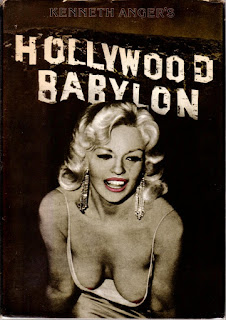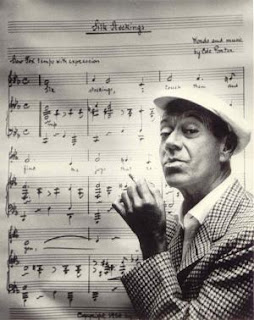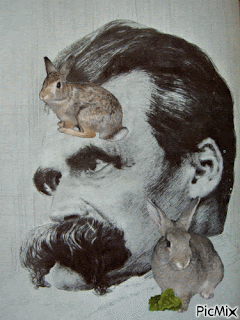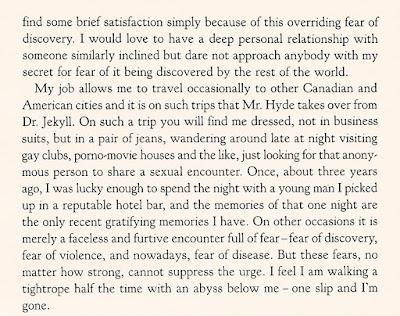I made the mistake of watching Equus last night, the whole thing this time. I’ve bailed on it at least once, and I should have bailed on it again: it's heavy, dark, oppressive, and totally sickening at the end. In essence, it's one long monologue by Dr. Martin Dysart (played by a pockmarked, dead-eyed Richard Burton), a disaffected child psychiatrist who treats an adolescent boy (Alan Strang) who has blinded six horses for no reason anyone can determine.
The original Broadway play does NOT “show” the horses being blinded, but dramatizes and narrates it, which would be much more effective. Even Roger Ebert in his review from 1977 said he could not watch that part, and I even had to mute the sound. I didn’t like the boy at all – didn’t even care about him, dull, snotty-nosed kid without a single thought in his head. I soon became bored with all his self-created travails.
And what was it about – how horrifying sex is? How religion destroys sex, how religion is sublimates sex – WHAT? Some say it was about, gasp, horrors, homosexuality, which might still have had some punch as a forbidden topic back in 1973 when it was first staged. Analysts to the stars like Mildred Newman (How to Be Your Own Best Friend, a bestselling masterwork of psychobabble) were still trying to "cure" it :"We've heard all kinds of success stories", she claimed, probably referring to Tony Perkins who later died of AIDS. But such sexual "deviancy", as it was known then, has no punch left in it now.
In the film version, Richard Burton is impossible to engage with. The many extreme closeups of his face are like a lunar landing, deeply pitted and utterly cold. On Broadway, the part was originated by Anthony Hopkins (who would have handled it better, though he’s still pretty stony), followed by Anthony Perkins, Leonard Nimoy, and maybe one other underappreciated Hollywood has-been. Along with that snotty-nosed git of a boy, I found it similarly hard to care about Burton’s character. In a rut? DO something about it, for God’s sake – have an affair with a girl or a boy or a PATIENT even. Get arrested! It would at least be a change of scene, wouldn’t it? No kaopectate needed. That reference gave me a good laugh, but it was the only time I actually felt something.
Maybe it’s a period piece, I don’t know – after all, this is Peter Shaffer, who wrote Amadeus, and that was a very long time ago. But the lines are just too flowery for normal speech – nobody talks that way or even thinks that way. (And we all know that going on and on about Greek mythology means you're actually a flaming poof.) It was self-consciously “beautiful”, verbal fireworks, real oooh and ahhh stuff, which I despise. Oh my God, how moving! Oh my God, how powerful! Makes me sick. How I hate writing that calls attention to itself.
It's a cheap trick.
Anyway, I was going to bail at several points, and should have. Or keep it for another day, which means never - I would have deleted it. Then I kept looking at the time left and looked up the length in my movie book (TCM leaves 20 minutes or so between movies for endless fawning over 95-year-old legends of the screen). I had half an hour left and trudged through it, literally covering my eyes when the blinding scene came, and muting it. I refused to watch or listen. Now I still feel a little bit sick and have a hangover or aftertaste which is pretty awful. Is that “art”? Art is supposed to unsettle as well as entertain, but I'm not sure it's supposed to unsettle your stomach to this degree.
A little backnote. I remember, ages ago, reading (or reading parts of - it was essentially unreadable) an attack on Hollywood by former producer Julia Phillips, who managed to devastate/alienate everyone in her path. It was called You'll Never Eat Lunch in This Town Again, a good description of her own self-created fate.
I only mention it here because it talked about her relationship with Tony and Berry Perkins. She attended a performance of Equus on Broadway with the couple, starring I'm-not-sure-who (but I think it was Hopkins, the originator of the part), and said that when Tony embraced her he "felt her up": "highschoolhighschoolhighschool," she commented, later pronouncing Equus "a crock of faggot shit".
BTW, "Lunch" (as it became known) was considered career suicide for a woman who often inspired the urge for homicide amongst her cohorts. This is an excerpt from a surprisingly long Wikipedia entry:
On its release most critics agreed that the book was both scandalous and career-ending. (Even with a quarter of the 1,000-page original manuscript excised, it took lawyers at Random House fourteen months to approve it for publication. Lewis Cole, in The Nation, described it as being "[not] written but spat out, a breakneck, formless performance piece...propelled by spite and vanity".Newsweek's review called it a "573-page primal scream", while one Hollywood producer said it was "the longest suicide note in history".In the 2003 documentary version of Easy Riders, Raging Bulls, based on Peter Biskind's 1998 anecdotal history of New Hollywood, Richard Dreyfuss recalled his initial fury at Phillips' revelations, before more circumspectly listening to "a little voice inside my head [saying] 'Richard, Richard, the truth was so much worse'." Despite Phillips' criticisms of Steven Spielberg in the book, Spielberg nevertheless invited her to a 1997 screening of Close Encounters of the Third Kind as a way of "keeping his friends close and his enemies closer."
The "career-ending" thing is a little ambiguous. Do they mean HER career, or the careers of those people she so savagely, publicly eviscerated? Why did she hate everybody so much? If the book was so suicidal, why is 85% of the Wiki entry dedicated to it? Why is she remembered far more for the memoir than for anything else? I also have a sneaking suspicion that people would be far more upset if they were left out of the book. Nothing is more devastating than being ignored by Julia Phillips.
Her feud with Erica Jong was legendary, and there are quite long passages in Lunch where she trashes her. Erica gets her revenge in more than one of her books, depicting her as a ball-crushing, narcissistic bitch in one of her novels (the one after Fear of Flying, whatever it's called) and having another go at her in one of her memoirs, insisting the two of them kissed and made up while Phillips was in the death-throes of cancer. In this scenario, Phillips apologized to her profusely - but we'll never know what really happened. Let's not forget that Jong primarily writes fiction.
With such a histrionic cast, it's all pretty good theatre, I'd say. Much better than the psychological clinker that is Equus. It's a bummer, folks. If you do watch it, fast-forward over the horse-blinding part. Or just put your hands over your eyes.
Post-thoughts. This is a tiny clip of Daniel Radcliffe's go at Alan Strang. I wish it were longer. I do like the idea of stylized, abstract human/horse figures, as it both takes away from the horror of watching actual horses have their eyes gouged out, and brings the horse/boy relationship uncomfortably close. These creatures are like centaurs in reverse. Not half-horse and half-human, but mostly human with a horse's head and impulse-driven brain. Sublimely beautiful, yet grotesque. Just the way the actor shakes the horse's head is eerily natural. I guess Equus was just one of those stage plays that got lost in translation.

















































